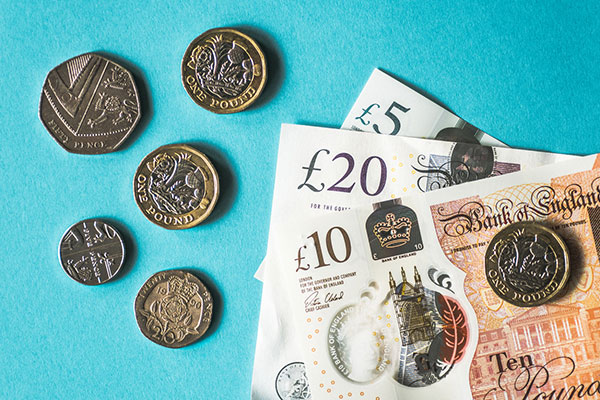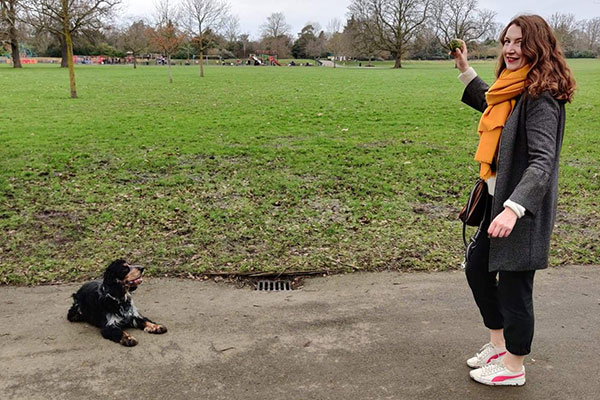How to turbo-charge your budgeting
19th January 2022 10:30
by Katie Binns from interactive investor
Share on
A low-spend January in 2020 showed Katie Binns that small, marginal changes can add up to big gains – so what’s involved?

It’s that time of the year when the hashtag No Spend January starts to pop up on Instagram and Twitter. Like Dry January and Veganuary - when people quit alcohol or animal products for a month - No Spend January involves cutting something out; in this case, it’s all non-essential spending.
Some people do it to help their finances recover from Christmas. Others are members of an extreme saving and investment movement known as Financial Independence, Retire Early (FIRE) and do it as part of their longer-term ambitions.
Enthusiasts post calendars crossing off the days of their no-spend month, offer tips and generally share the highs and lows of the challenge - from cooking with random ingredients, to cracking and buying something in the sales.
Nicola Richardson has done the challenge five years in a row. She avoids eating out, takeaways, coffees and alcohol, shares lifts to work and keeps her food shop to a minimum. The annual habit kickstarts her year, allowing her to overpay her mortgage by £100 and put £700 into a stocks and shares ISA with the savings she makes. Good for her, I thought.
- Squid Game has lessons for investors
- Low-cost investments to help get you started – all chosen by our experts
But I rolled my eyes when I saw the counter-response online. “All of these f—ing things are so f—ing boring,” said one. “I’ve got a funeral next week. I’m actually looking forward to it - better than penny-pinching!” said another. “January is already miserable, don’t know why you’d actively try to make it worse,” whinged yet another. Comments about her seeming like fun were predictably peppered throughout.
It's easy to mock people being frugal and making the most of their money, but there's currently a cost of living crisis. Inflation, upcoming tax hikes and scarily high energy bills (quite possibly for the next couple of years) will continue to seriously squeeze household finances.
Meanwhile, borrowing on credit cards rose to its highest level in more than a year in November. Britons added £900 million to credit cards, taking total net borrowing that month to £1.2 billion, the highest level since lockdown eased in June 2020. It even looks high compared to December 2019, when the nation spent £681 million on plastic.
- Want to learn more about the world of investing? Visit our Knowledge Centre
- Check out our award-winning stocks and shares ISA
It means most of us - whatever our income - will have to find ways to turbo-charge our budgeting. And not along the lines of fatuous articles suggesting we cut out avocados or reconsider a six-figure home renovation.
Low spending and saving can make you sound boring and smug, but it need not be. I know this after doing a low-spend January in 2020. I was inspired after talking to a brilliant mum of five, who every January for years has managed to get her husband and children on board, forgoing pocket money and the usual spending and sticking to game and film nights for entertainment.
I set myself a weekly budget and saw my month revolve around drinks at home with friends, free comedy gigs, baking, pizza vouchers, free dog walks courtesy of an expired subscription with BorrowMyDoggy, and reading more books than usual. There was also the novelty of proper phone calls with loved ones I hadn’t spoken to in ages.

It wasn't that hard. When friends learned what I was doing they were supportive and happy to go along with whatever free or cheap get-together I suggested. I discovered I had been paying for Amazon Prime for two years, so I cancelled it and immediately saved myself £100 for the year. I made £80 selling clothes on eBay. The whole month was a useful exercise in trimming my outgoings, living well on less and learning how much I need to maintain my desired lifestyle.
Those small marginal changes can add up to big gains. I was thrilled when I saved almost £1,000 and decided to use the cash to book a holiday. Of course, the pandemic came along and squashed that idea. But the benefit of a low-spend period stuck: I now see it as something to slot into my year, the same way I do the dentist.
- 10 personal finance changes to watch out for in 2022
- Watch our New Year share tips here and subscribe to the ii YouTube channel for free
There’s still time for a low-spend fortnight this January. My advice? Meal planning is essential when you set yourself a budget: I was disorganised in that respect so ended up eating beans on toast more often than was actually necessary.
BBC Good Food’s budget recipe sectionshows you can eat well for less, while the app Too Good To Gooffers unsold food from supermarkets and restaurants at much cheaper prices to stop it going to waste.
Decide what you'll use your savings for. Whether it’s to help with rising council tax, the increase in your annual train ticket or to boost emergency savings - it’ll help to keep you motivated. I’m currently focused on the doubling of my energy payments from next month. Gulp.
And use cash. “What millennial carries cash? Bunch of weirdos mate,” someone tweeted. I admit it felt very old-fashioned, but it seemed to be the only way for this weirdo to control her spending!
These articles are provided for information purposes only. Occasionally, an opinion about whether to buy or sell a specific investment may be provided by third parties. The content is not intended to be a personal recommendation to buy or sell any financial instrument or product, or to adopt any investment strategy as it is not provided based on an assessment of your investing knowledge and experience, your financial situation or your investment objectives. The value of your investments, and the income derived from them, may go down as well as up. You may not get back all the money that you invest. The investments referred to in this article may not be suitable for all investors, and if in doubt, an investor should seek advice from a qualified investment adviser.
Full performance can be found on the company or index summary page on the interactive investor website. Simply click on the company's or index name highlighted in the article.